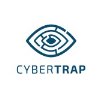
PacketViper
PacketViper empowers cybersecurity teams to tackle unknown threats with adaptive, contextual security policies. Utilizing deceptive techniques, it automates threat detection, containment, and response, effectively eliminating false positives and reducing alert fatigue. This enhances the protection of remote OT and ICS assets against exploitation and minimizes operational disruptions.
Top PacketViper Alternatives
FortiDeceptor
FortiDeceptor is an innovative deception technology solution that proactively detects and isolates both human and automated cyber threats.
RevBits Deception Technology
RevBits Deception Technology enhances threat-hunting capabilities for security administrators through its innovative use of real server-based honeypots in a lightweight environment.
Labyrinth Deception Platform
The Labyrinth Deception Platform expertly identifies and mitigates cyber threats by creating high-fidelity imitations of IT services within the network.
Lupovis
Lupovis offers a cutting-edge Deception as a Service platform that enhances threat detection through the deployment of realistic traps and decoys.
ZeroHack TRACE
ZeroHack TRACE is an advanced cyber threat intelligence framework leveraging decoy technology and adaptive sensors.
HoneyTrace
HoneyTrace empowers organizations to monitor their sensitive data both inside and outside network perimeters.
Baits
It intercepts stolen logins, deploying undetectable fake portals that trick attackers into revealing their intentions...
Defused
It enables security teams to efficiently set up precise decoy sensors, rapidly detect threats, and...
CyberTrap
This innovative approach enables real-time detection of threats, trapping both automated and manual hacking attempts...
Deception.ai
With intelligent workflows, it streamlines the design and deployment process from three months to just...
Top PacketViper Features
- Dynamic deceptive techniques
- Automated threat response
- Comprehensive network visibility
- AI-driven threat blocking
- Lightweight agentless decoys
- Real-time threat containment
- Reduced alert fatigue
- Multi-context filtering
- Proactive cyber defense
- Believable deceptive artifacts
- Contextual incident response
- Integration with legacy systems
- Positive compensating controls
- Preventive measures for OT assets
- Incident-driven operational insights
- Remote asset security focus
- Low false-positive rates
- Automated detection and prevention
- Resilient against unknown threats
- Facilitation of compliance standards









